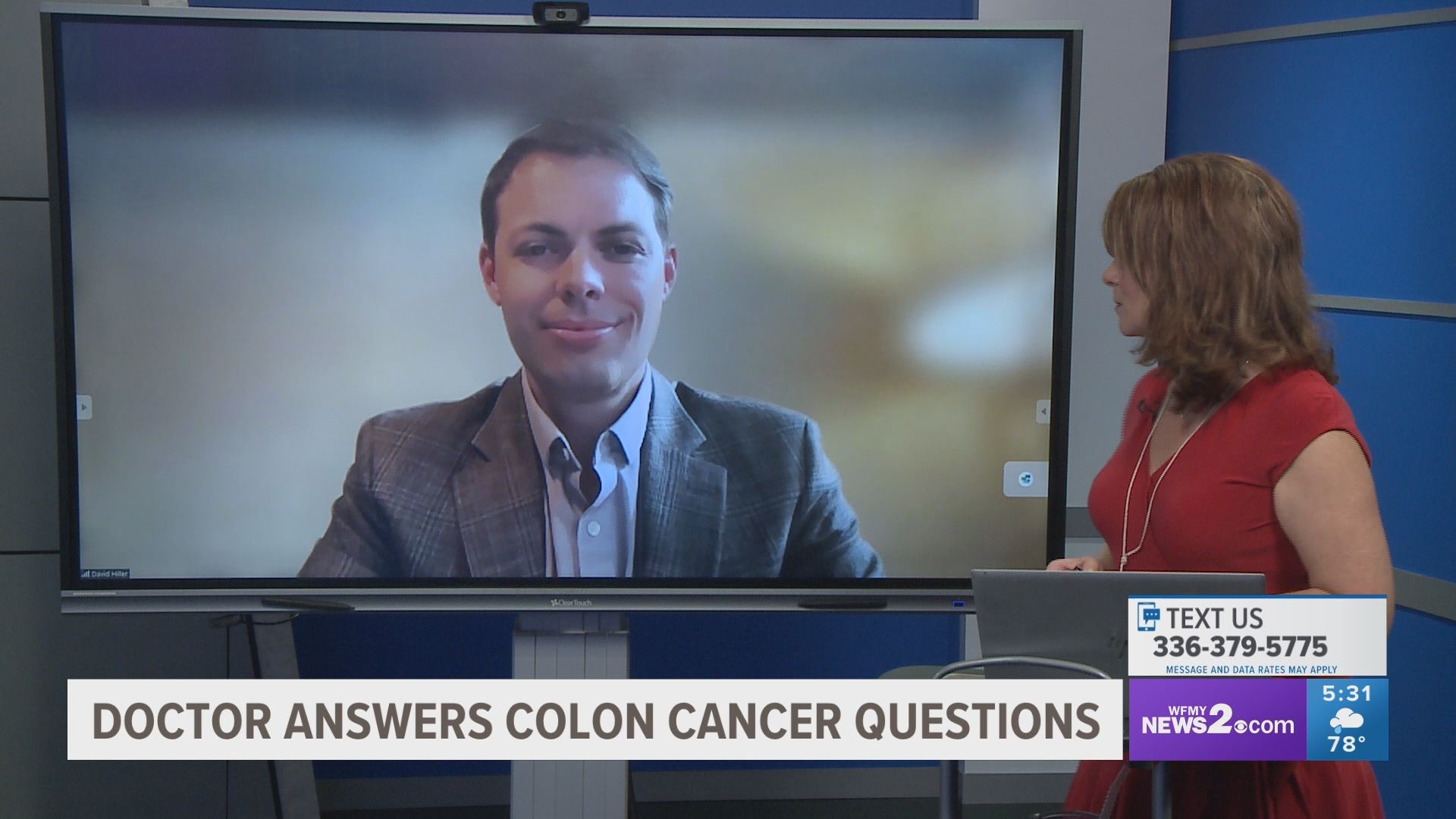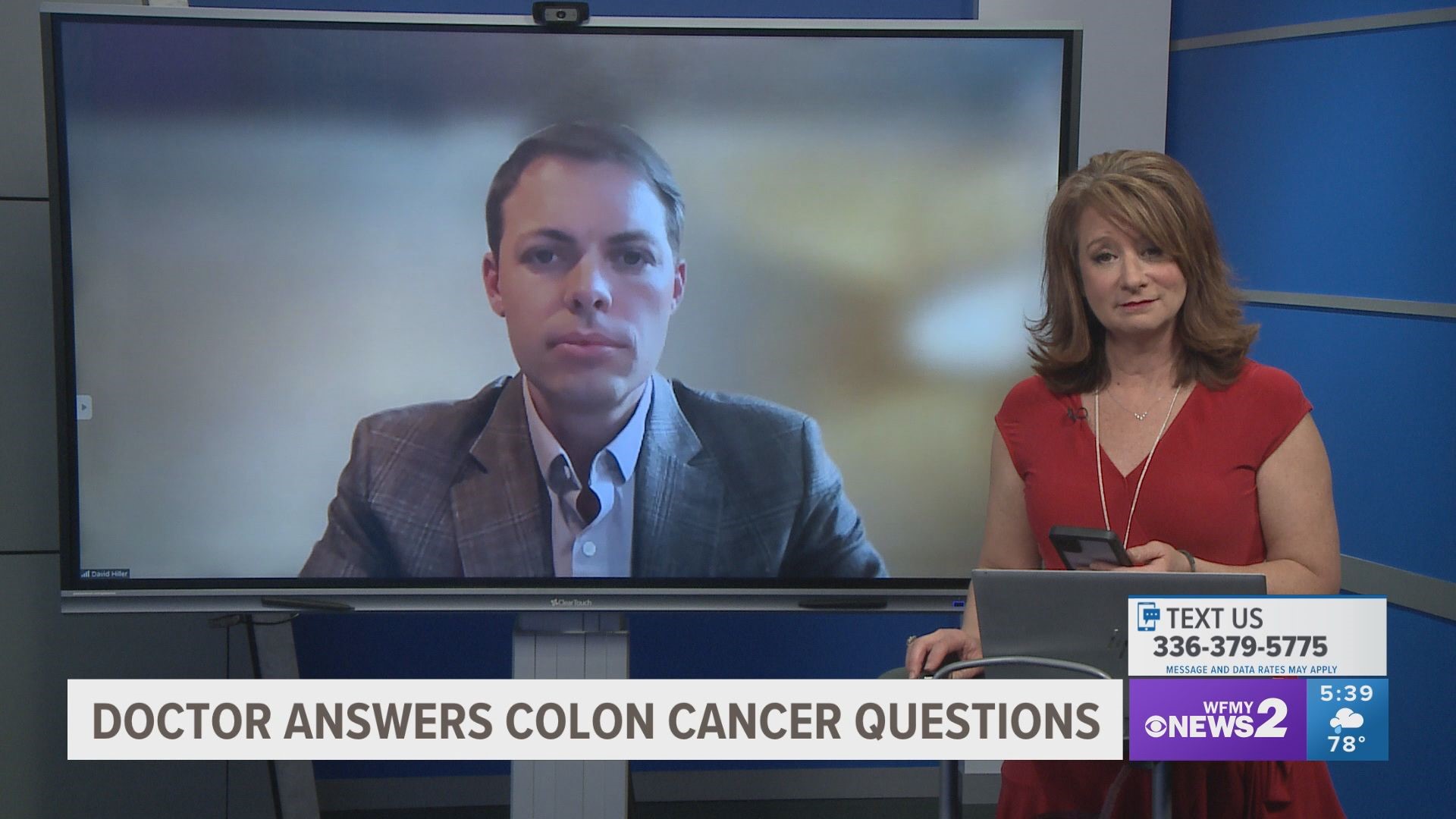GREENSBORO, N.C. — The WFMY News 2 family celebrated Wednesday when Julie Luck returned to the newsroom. Julie went on leave in January after getting diagnosed with stage 3A colon cancer.
Julie's doctors declared her cancer free in late May after a round of blood work. She rung the bell Tuesday, signifying the end of her treatment.
Julie was shocked when she got diagnosed. She spent much of her time undergoing treatment encouraging others to get checked.
Dr. David Hiller, a colon and rectal surgeon from Novant Health, joined 2 Wants to Know to help people better understand colon cancer.
Colon Cancer
Hiller said the disease happens when someone gets an abnormal growth on the inside of their colon. He said it usually starts to polyp before becoming malignant.
Hiller said family history plays a relatively small role in someone's risk level. He said about 5-10% of people diagnosed with colon cancer have a relative who battled the disease.
Hiller said some studies suggest people that smoke or are obese have a higher risk of developing colon cancer. However, cases are popping up more frequently, and doctors aren't entirely sure why. That means almost everyone is at risk.
Warning Signs
- A persistent change in your bowel habits, including diarrhea or constipation or a change in the consistency of your stool
- Rectal bleeding or blood in your stool
- Persistent abdominal discomforts, such as cramps, gas, or pain
- A feeling that your bowel doesn't empty completely
- Weakness or fatigue
- Unexplained weight loss
Colonoscopies
Hiller said colonoscopies function differently from other screenings. He said doctors can both detect and treat the disease at the same time when it gets caught early as a benign polyp.
Hiller said you meet with your doctor before the procedure to discuss preparation. He said doctors will have you drink something that makes you use the bathroom a lot, so they can see your colon clearly during the colonoscopy.
Hiller said most people choose to get sedated during the procedure. He said it lasts about 20 minutes. Hiller said a doctor will observe you after you wake up to make sure you feel okay before letting you go home.
Hiller said more young people are getting diagnosed with colon cancer. That led to a revised age recommendation of 45 for someone's first colonoscopy.


